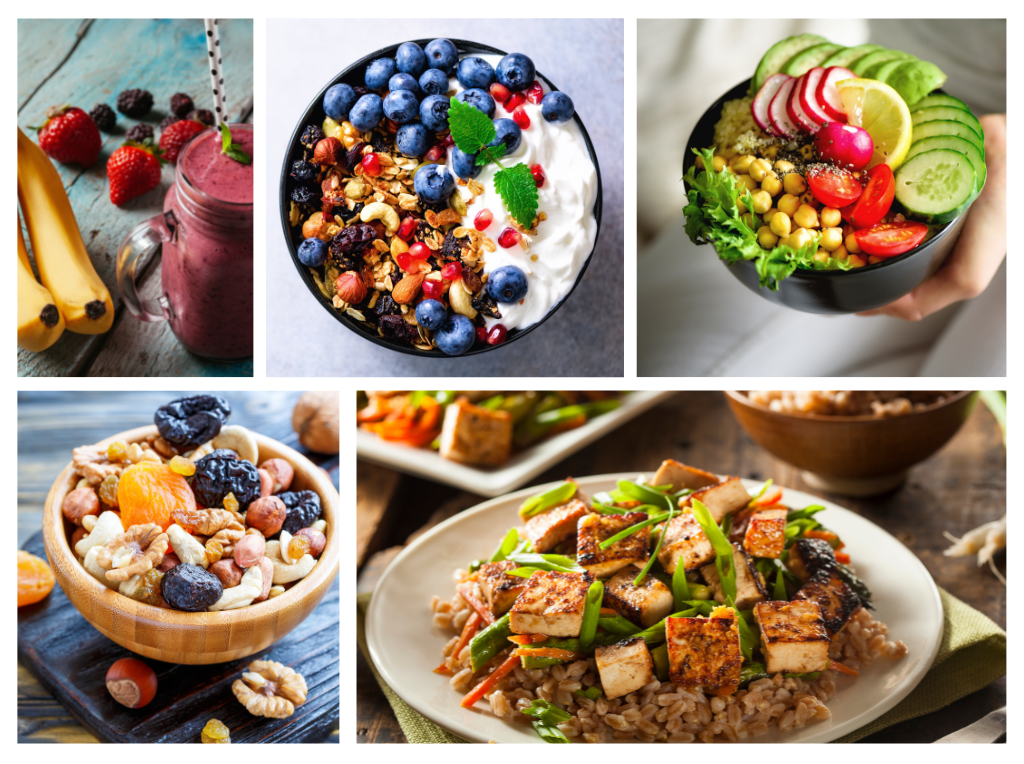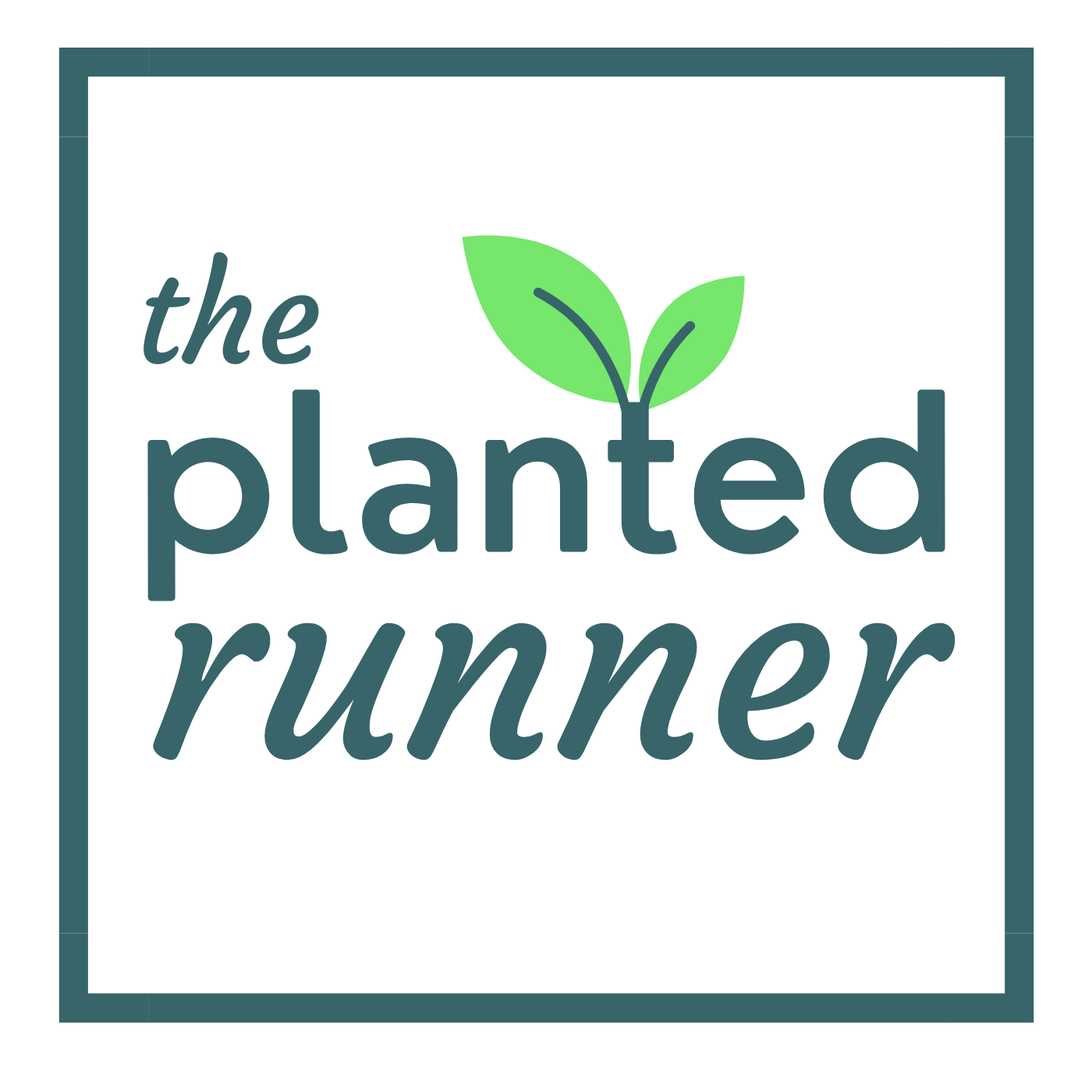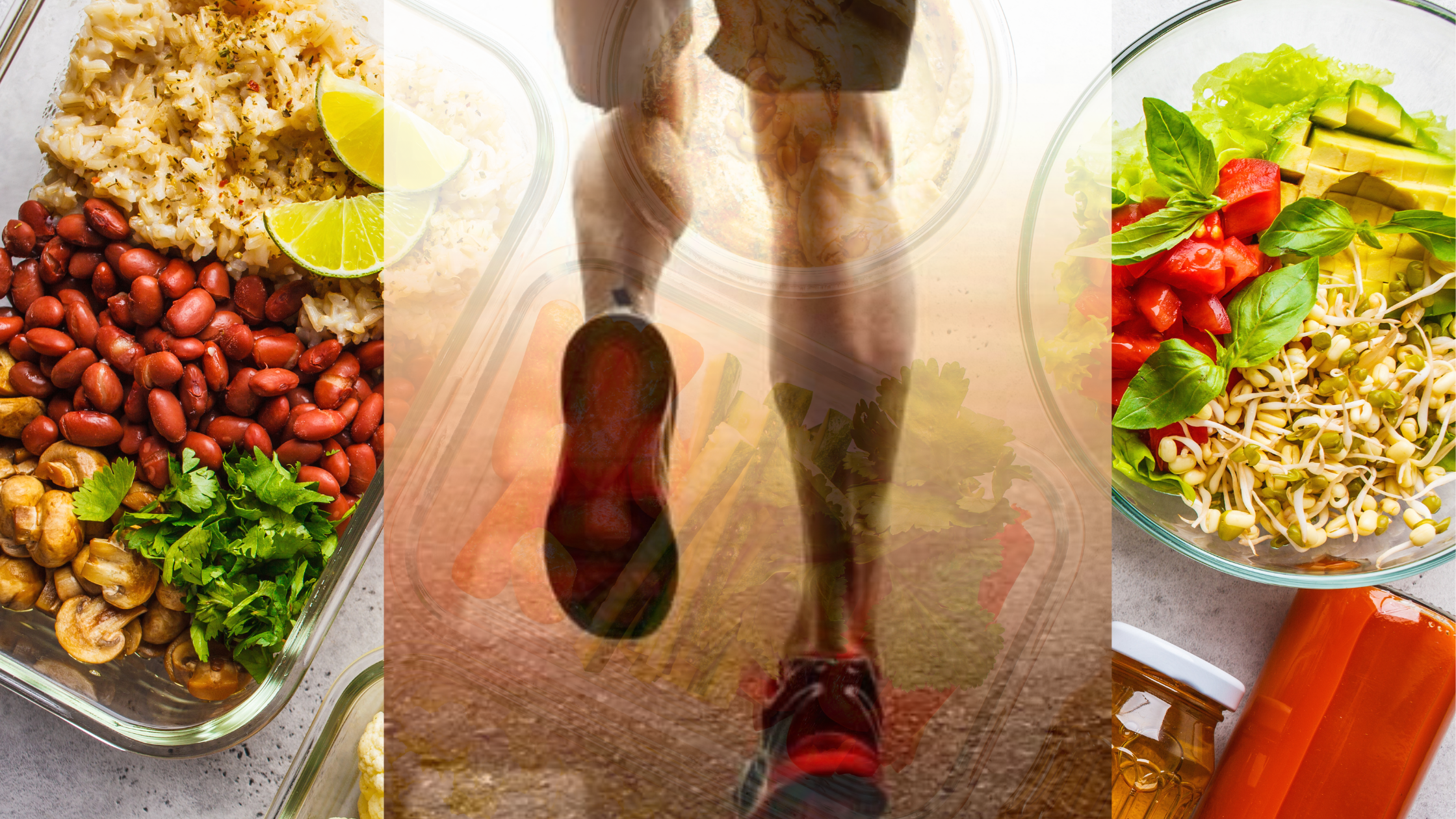It’s never been easier (or trendier!) to move to a plant-based diet. No longer an obscure way of life for determined hippies, more and more people are choosing to eat more plants more often. Plant-based foods fill the grocery store shelves, dominate the dairy section, and even show up on menus at most restaurants.
But is this rather odd way of eating really healthy? Can you really fuel your life and your running only on plants?
The evidence (and the anecdotes) overwhelmingly say yes. Plant-based runners like Scott Jurek, Michael Wardian, Ellie Greenwood, Fiona Oakes, Rich Roll, Brendan Brazier, and yours truly have consistently topped podiums and broken records, running entirely on plants.
But will it work for you?
Let's explore:
- the benefits that a plant-based diet provides runners
- the potential downsides to going plant-based, and I’ll give you
- a day in the life of a vegan runner with meal examples that you can try today
I am a Certified Sports Nutrition Specialist, which means that I am qualified to coach nutrition for athletes, but I do want to make it 100% clear that I am not a registered dietitian. If you are really struggling with your nutrition and need detailed meal plans, you should search out an RD that works with runners.
Okay, disclaimers out of the way, I’ve gathered the science that I can find that can help you decide whether a fully or even partially plant-based diet is right for you and your running.
A 2019 study in the medical journal Nutrients looked at plant-based endurance athletes and their overall health. They wanted to know if these athletes could truly thrive and perform only on plants.
Reduced Inflammation
The first amazing effect of a plant based diet is reduced inflammation.
When you come back from a tough run or strength session, your body’s immediate response is inflammation. This is actually a good thing. Acute inflammation is your body’s way of calling in the troops to assess and repair the damage you’ve done. We want this process to happen, but we also want it to be over pretty quickly. If you are still inflamed when you are ready for your next workout, you will likely be sore, tired, and your performance will suffer.
A plant-based diet could be an important way to help reduce inflammation. Taking a look at 18 prior studies in a 2017 meta-analysis, vegetarian diets consumed over a two-year period were shown to reduce certain markers of inflammation. This suggests that there is an anti-inflammatory effect of plant-based foods.
The researchers theorize that the anti-inflammatory benefits of plant-based diets may stem from their antioxidant content, the absence of things that may be inflammatory, or the absence of pro-inflammatory fats.
A few studies have examined the possibility that specific foods with antioxidant activity might decrease the inflammation response and promote recovery like tart cherries, pomegranates, blueberries, blackcurrants, and watermelon. Another good reason to load up on fruit after your workout!
Better Glycogen Storage
The next cool part of a plant based diet for runners is better glycogen storage. Glycogen is the fuel that our bodies make from the food we eat that fuels our brain and our muscles. We store glycogen mainly in the muscles and in the liver and the more you have on board, the farther and faster you can run without hitting the dreaded wall.
But the surprising fact is that most endurance athletes aren’t filling up their glycogen tanks enough. Sure, if you are an experienced marathon runner, you’ve probably learned to carb load in the days before a race, but what I’m talking about is chronic carbohydrate underfueling.
This eating pattern will put you at risk for an overly rapid depletion of glycogen from the muscle and liver which makes you feel fatigue on your runs much sooner than you would fully fueled.
A 2016 study of athletes participating in full and half Ironman triathlons, winter triathlons, and winter pentathlons showed that only 46% reported meeting the recommended carbohydrate intake for athletes training 1–3 hours per day. That’s about ≥6 grams of carbs/kg body weight per day. Grains, fruit, legumes, and root vegetables are rich in complex carbohydrates, so athletes who go plant based can typically hit those marks much more easily.
Better Blood Flow and Increased Tissue Oxygenation
Runners can also expect better blood flow and increased oxygenation of tissues on a plant-based diet. As a runner, your blood is likely already a little thinner, with a little more plasma than your friend on the couch. This low-viscosity blood can move through your body easier and oxygenate your tissues better, which leads to better running performance. Your food choices also play an important role in the viscosity of your blood as well and guess what helps the most? Yep, plants.
In a study comparing 48 individuals following vegetarian eating patterns and 41 matched controls, plasma viscosity, cell volume, and blood viscosity were lower in vegetarians, and the stricter the avoidance of animal products, the greater the observed differences.The entirely plant-based subjects had significantly lower blood viscosity, compared with those having meat less than once a week.
So is it the plants that are providing the benefit to your blood and arteries? Or is the culprit the fat from the animal products? What about plant fats and oils? Studies have shown animal fat to impair the flexibility of your arteries but the results are mixed with olive oil. So to stay in the clear, it’s likely best to get your fats from whole plants like nuts, seeds, and avocados.
Leaner Body Mass
And finally, the benefit that many people get most excited about is a plant-based diet can help keep you lean.
The researchers have concluded that it’s easier to have a lean body mass when you are only eating whole plant foods vs a traditional omnivore diet. Fruits, veggies, beans and whole grains all are much denser in nutrients per calorie than meat and most dairy products. They are also full of water and fiber so you can fill up and be satisfied with far fewer calories per bite.
A typical plant-based diet is much lower in fat than a standard diet and that can have a dramatic effect on your metabolism. In a 2005 study, the use of a low-fat vegan diet for 14 weeks increased the energy burn after eating by 16%. The scientists theorized that this was due to changes at the mitochondrial and cellular level.
To oversimplify a complex process, the mitochondria and the gut bacteria end up increasing energy expenditure. And there is a greater metabolic cost of converting dietary carbohydrate to body fat, compared with converting dietary fat to body fat.
In other words, carbohydrates from plants are easier to burn as fuel and harder to store as fat, leading to a leaner body without trying so hard.
A leaner body is easier to move around, can boost your VO2 max, and will often make you a faster runner, up to a point of course. If you are already a healthy weight, your training will make a far bigger difference than changes in your body weight. But if you can lose extra fat by simply choosing healthier foods that satisfy you, that is certainly a good thing.
The Downsides of a Plant-Based Diet
At this point, you might be thinking that if all the evidence is so strong for a plant-based diet, why aren’t more elite athletes plant-based? There are a lot of reasons for this, both social and practical. It can be inconvenient to be 100% plant-based. And the honest truth is that a plant-based diet isn’t a magic bullet. Lots and lots of athletes reach the very top of their sports while choosing to include meat and dairy.
But what the science says is that at the very least, a well-planned plant based diet can be just as effective as a well-planned omnivorous diet for athletic performance.
But even with all the great reasons why plants can help your running, I’ve also got to warn you on the downsides and pitfalls.
The first drawback is purely social. If everyone around you eats differently than you, it can be hard to be the odd one out. But, if you are reading this, you are likely someone who’s interested in something else that’s a little odd to most people, long distance running. You are probably already used to going against the grain a little bit, so if you can do that, you certainly can shift to more plants!
Where to Start
The next pitfall is not really knowing where to start. If you simply remove the chicken from your plate and replace it with bread or lettuce, you’re probably going to be disappointed in the whole plant-based thing pretty quickly. You will still want to follow balanced macro practices no matter what diet you choose, meaning you are getting in your requirements for carbs, fat, and protein.
The Protein Question
Once you decide to go plant-based, the most common question you’ll get will be, “Where do you get your protein?”
The answer is that you can get plenty of protein on a plant based diet! But you do have to educate yourself on what you are doing. All plant foods contain protein, but athletes require more than non-athletes, so you will have to make conscious protein choices every meal.
My favorites are beans, tofu, lentils, tempeh, quinoa, nuts and seeds. If you are really struggling to get in enough as a runner, there are some great plant-based protein powders and bars (Nourify is my personal favorite and you can use the code PR15 to save 15%) that can help you hit your marks. Whole foods are best, of course, but progress is far better than perfection.
Now, a very common comment I get when I talk about plant-based protein is that plant proteins are less bioavailable than animal proteins. Or that you can’t get all the essential amino acids from each type of protein. Both of those statements are completely true. But those facts are also easily overcome by eating a wide variety of plant based proteins throughout the day to make sure you get enough.
There are a ton of plant-based meat substitutes out there that are delicious and can make your transition easier. But nutritionally, most of the fake meats aren’t much healthier than the originals, so save those for an occasional treat rather than using them as staples.
Be Sure to Make it Delicious!
Your tastebuds will likely start to change as you eat more and more plants. Processed foods are intentionally hyper-delicious to keep you coming back for more. As you eliminate those, you’ll soon start to notice the incredible taste of a perfectly ripe pineapple or a deliciously flavored veggie stir fry.
And speaking of delicious, don’t forget to make it taste good! When I first went plant-based, I was so focused on making everything so healthy that everything tasted terrible! You can make simple, rich flavors with sauces and seasonings that even a carnivore will love.
Supplements
A critical piece of information for any plant-based or vegan diet is that you do need to supplement with B12. You might also want to get a blood test to check your levels of iron and vitamin D. B12 is something that many, many people are lacking, not just vegans, and it’s a bacteria found in soil that concentrates in animal flesh. With cleaner produce and less fertile soils, it’s something most of us can’t get enough of without a supplement.

A Day of Eating for a Plant Based Runner
Now that you know the benefits and what to watch out for, let’s look at what a real plant-based diet look like for a runner? Obviously, it can and will vary depending on your calorie and nutrient needs but here’s a quick example.
Breakfast: Oatmeal made with a fortified plant-based milk, such as almond, soy, or flax. Top it with berries, pecans, and a sprinkle of sunflower seeds. If you can't eat this much before your run, try something simple like a banana or graham cracker and have a big breakfast when you get back.
Post-workout snack: Smoothie made with plant-based milk, peanut butter or protein powder, banana, greens, and a dash of chia or hemp seeds.
Lunch: I usually make extra dinner from the night before to make prep super simple and throw everything on a bed of greens. A good example is a loaded salad with greens, red onions, corn, black beans, avocado, salsa, roasted sweet potato with a drizzle of tahini and lime dressing.
Afternoon snack: Fresh or dried fruit with a handful of mixed nuts
Dinner: Stir fry with brown rice or quinoa with tons of your favorite veggies, crispy tofu, with a swirl of sweet and spicy teriyaki sauce. I also love this White Bean and Kale Chili.
See? It’s not too complicated or weird, is it? There really are a million ways to mix it up and enjoy delicious plant based foods that are good for you, the planet, and your running.

